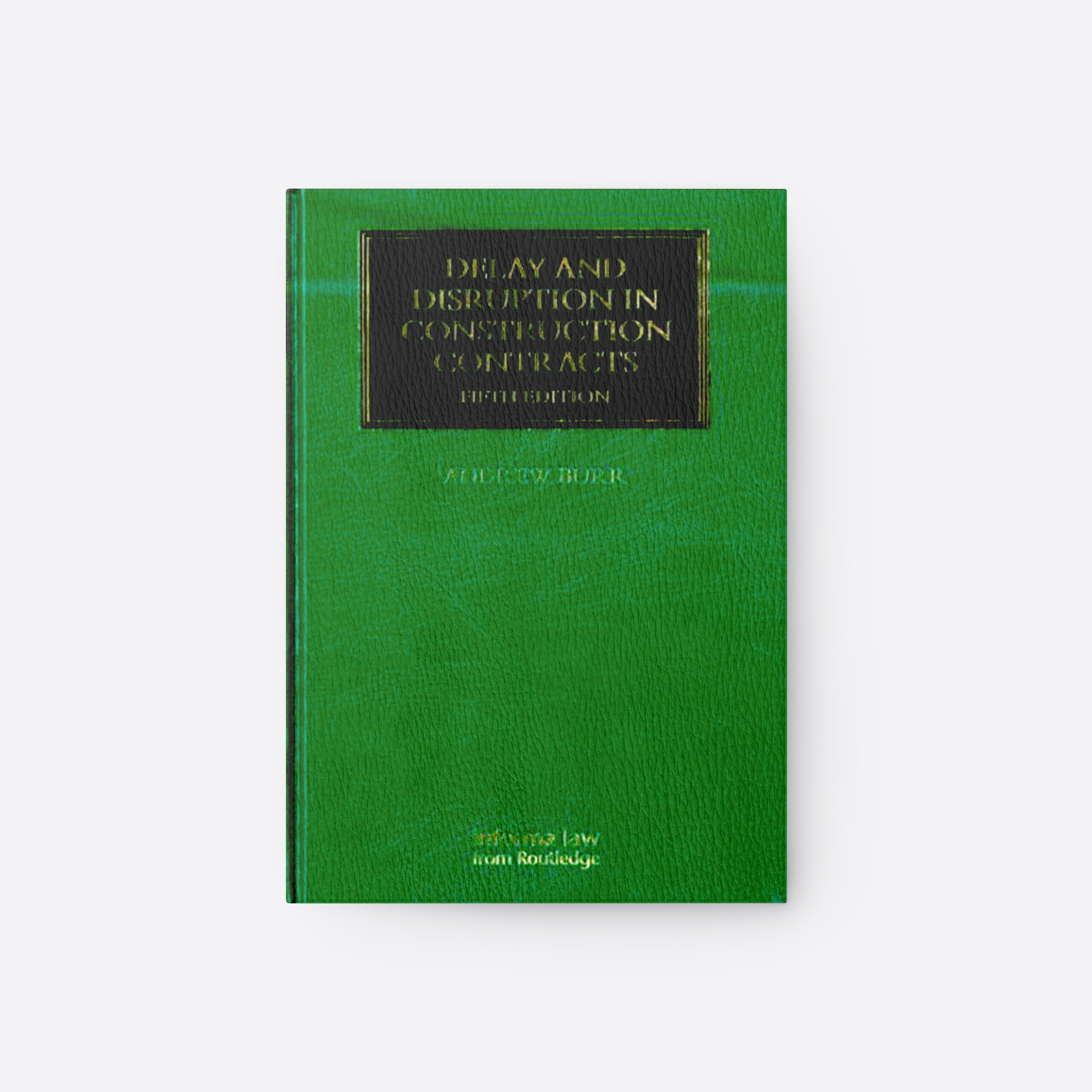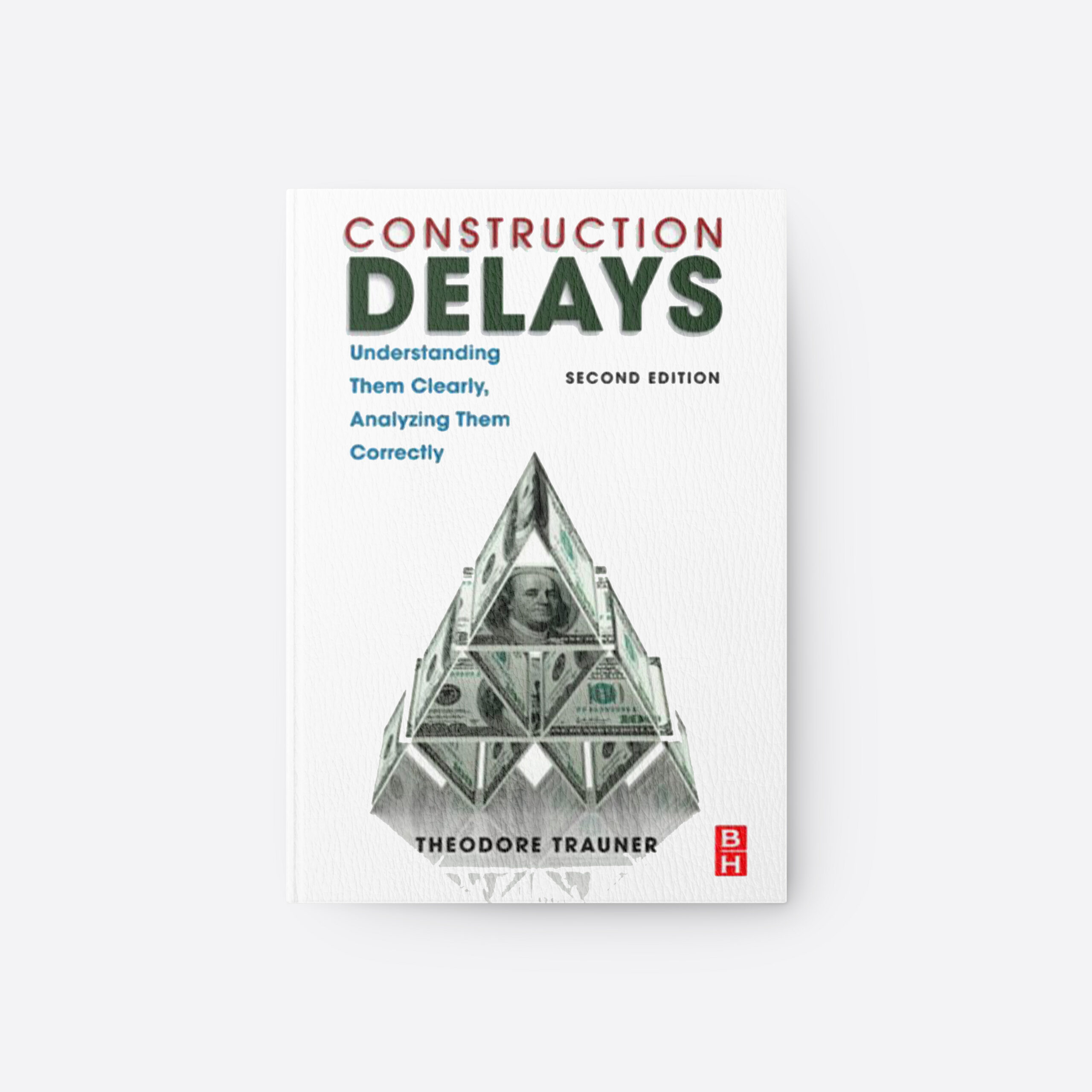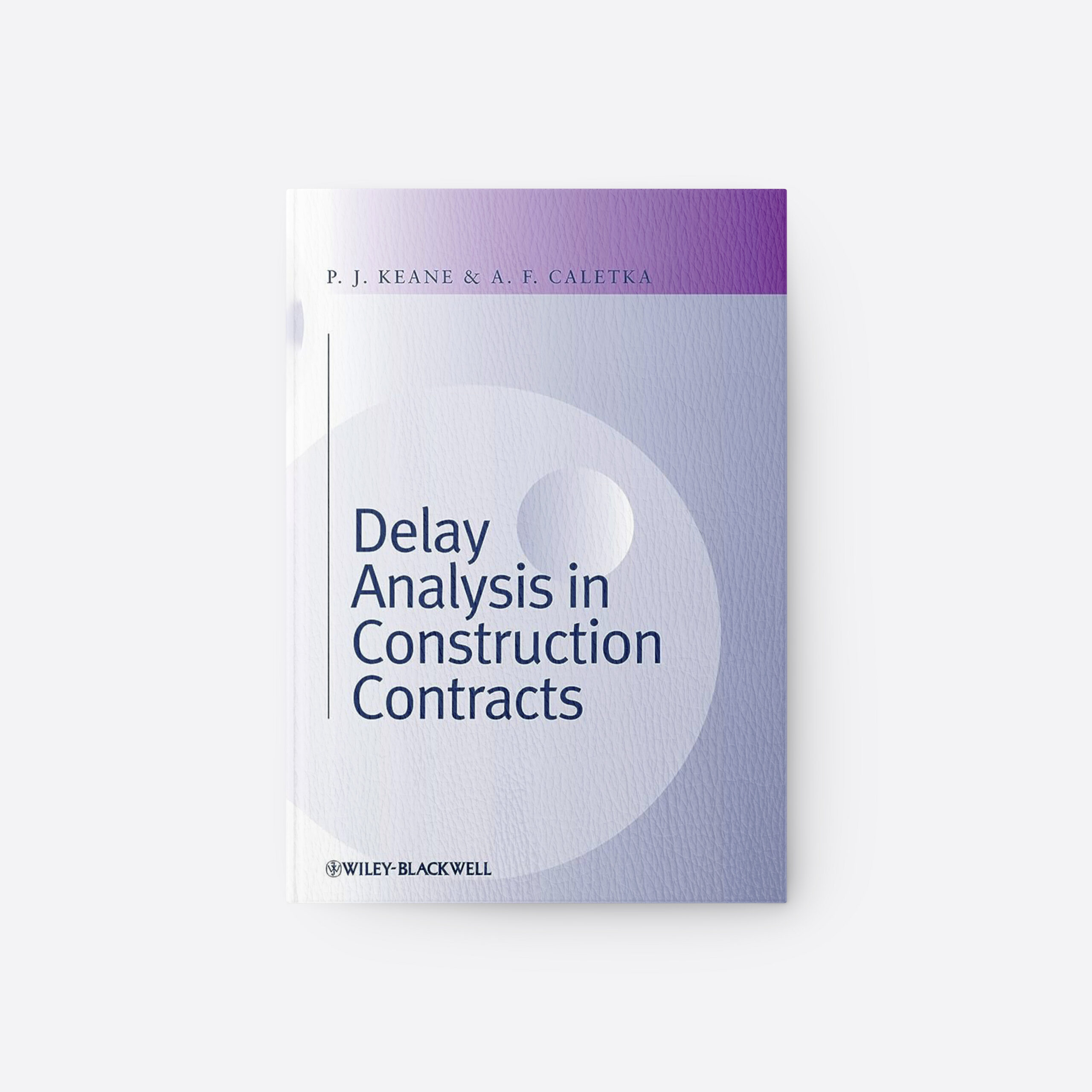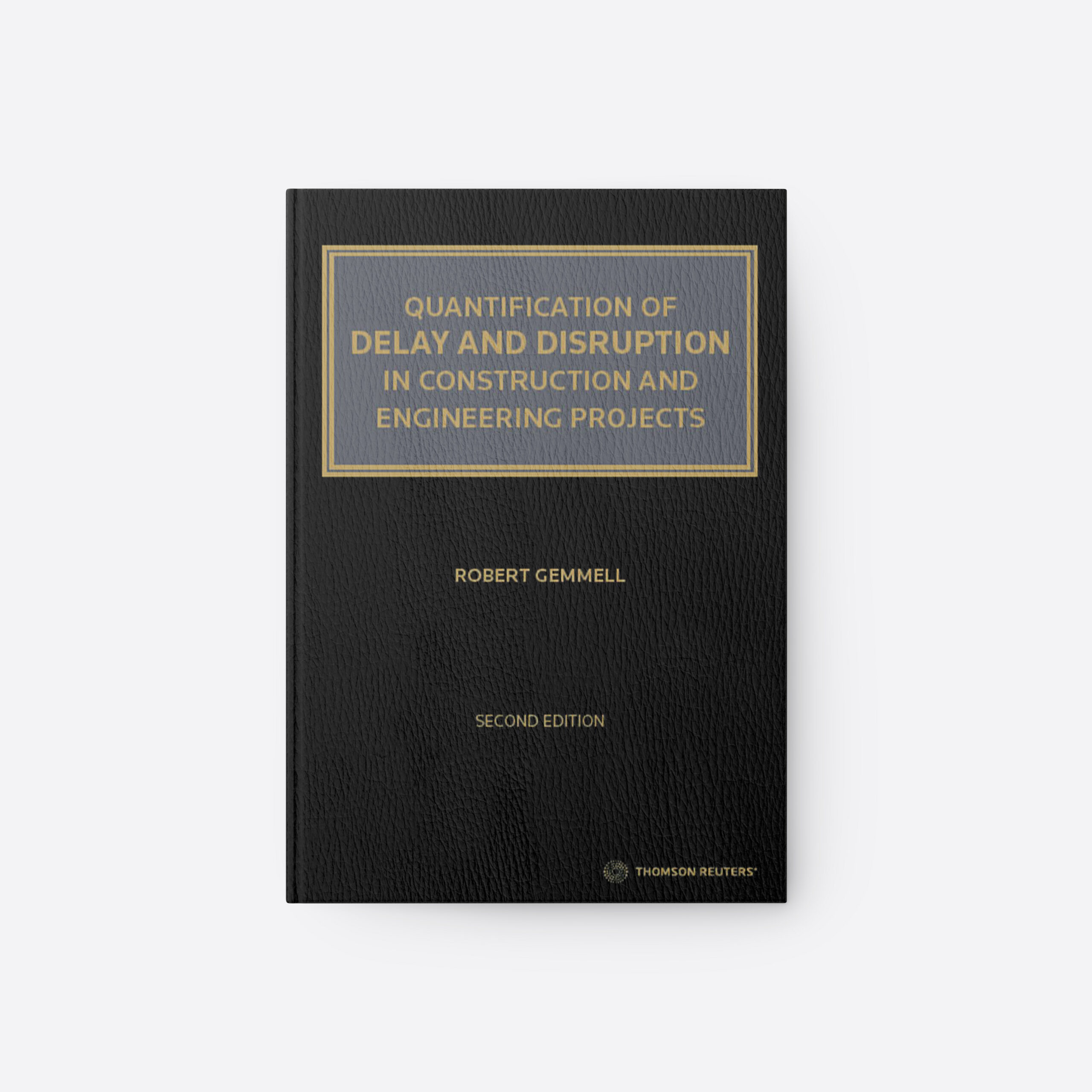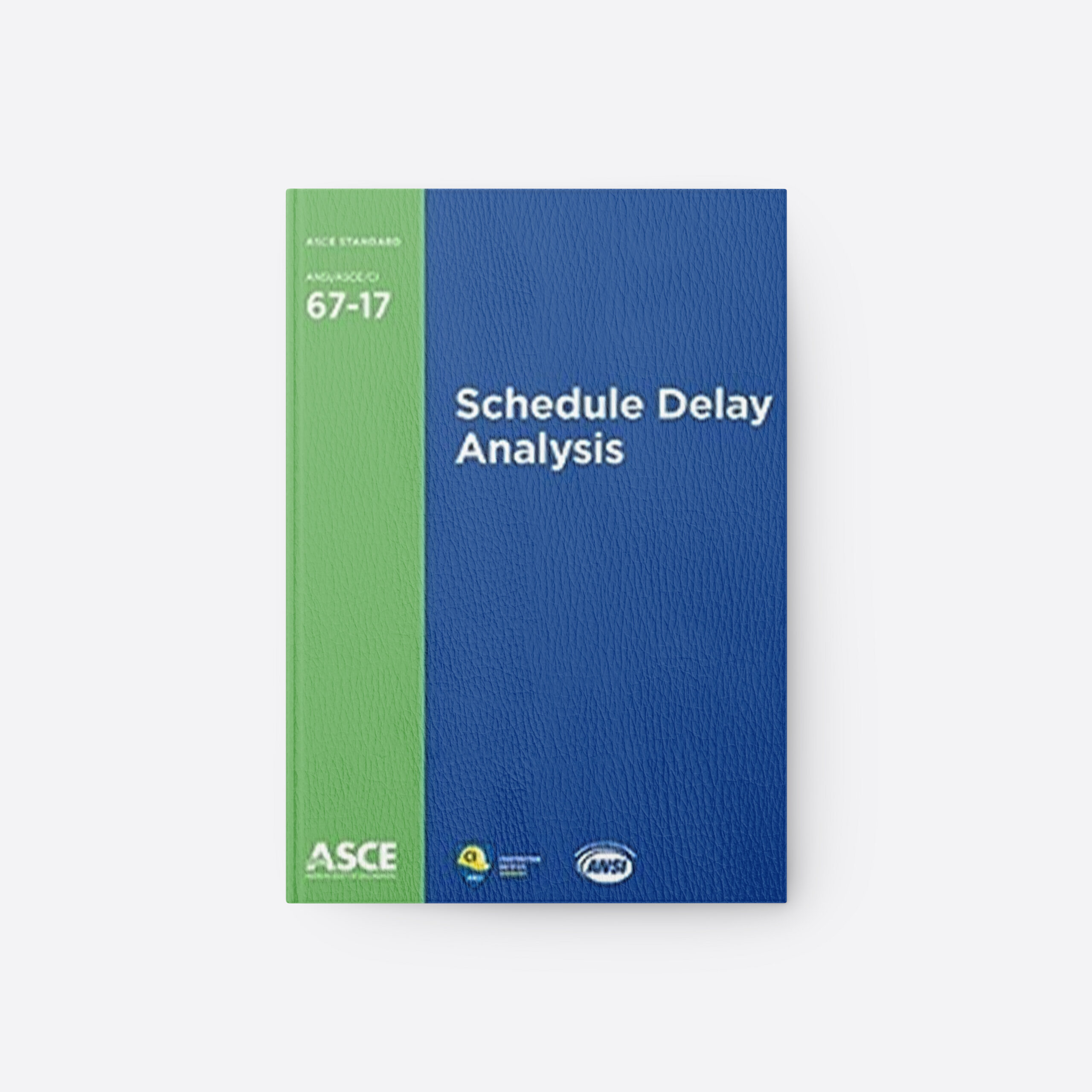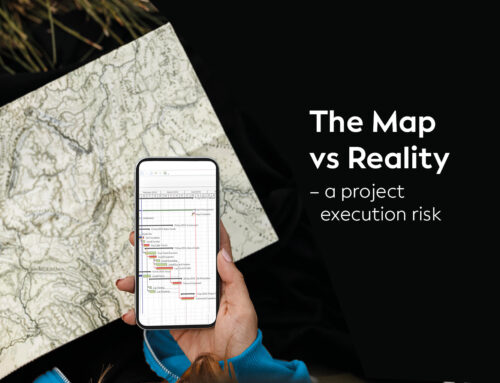Delay claims is a critical aspect of the construction industry, as it addresses the complexities that often arise in projects, leading to setbacks and disputes. For construction professionals, understanding the principles of delay claims is essential for effectively managing and resolving such issues. In this article, we will explore some good books on delay claims in construction. Each book offers valuable insights, methodologies, and case studies that shed light on the intricacies of delay analysis, making them indispensable resources for contractors, project managers, legal experts, and anyone involved in the construction process.
This book delves into the intricacies of construction delay claims, exploring their causes, analysis, and resolution. With practical examples and case studies, the authors guide readers through methods for analysing delay claims and strategies for effective presentation and defence. The authors not only explore delay analysis techniques but also discuss their suitability in different scenarios, showcasing how combined approaches can be employed when necessary. The book addresses problematic issues like ownership of float, concurrent delay, early completion programs, and disruption. With up-to-date references to publications from the CIOB, AACEI, and SCL, along with current case law, this comprehensive guide covers various delay analysis approaches found in national and international projects. It features practical examples and case studies, illustrating techniques commonly used by experienced practitioners.
In its fifth edition, “Delay and Disruption in Construction Contracts” continues to be the leading guide on the intricate and potentially costly issues of delay and disruption in construction projects. This authoritative book has been recognised by the judiciary as a key textbook in court decisions worldwide. Covering all stages of construction, from inception to completion and beyond, the book is authored by a team of international specialist advisory editors. It offers a comparative analysis of construction law in various jurisdictions and includes commentary on standard forms and new chapters on adjudication, dispute boards, and Building Information Modeling. With updated case law and helpful illustrations, the book provides practical and academically rigorous insights, making it an indispensable reference for lawyers, dispute resolvers, project managers, architects, engineers, contractors, and academics involved in the construction industry.
In this book, Trauner takes a comprehensive approach to discuss delay-related issues in construction projects. The author delves into the root causes of delays, examining project management practices that contribute to or alleviate these issues. By focusing on the interplay between contract clauses, project schedules, and delays, the book equips readers with practical strategies to identify, assess, and address delays effectively. The clear and concise explanations make this book suitable for both seasoned professionals and those new to the field. The book covers delays, delay damages, and risk management, including early completion schedules and constructive acceleration. This second edition includes updated chapters reflecting changes in the construction field, new methods for analysing delays, and a focus on delay-related risk management for all parties involved in construction projects
This comprehensive book offers valuable guidance on delay analysis, with a particular focus on extension of time submissions. It equips readers with essential information and practical insights to formulate and resolve extension of time submissions and time-related prolongation claims. The author provides recommended good practices and covers all common delay analysis techniques, accompanied by helpful worked examples. Written in a practical and user-friendly style, the book also includes useful charts and graphics. Construction professionals dealing with extensions of time and delay claims, as well as lawyers and other stakeholders in the construction and engineering industries, will find this book to be an invaluable resource.
This concise and highly recommended guide, “Delay Analysis in Construction Contracts,” authored by John Keane and Anthony Caletka, is a valuable resource for professionals dealing with delays, programming, and extension of time in construction projects. The book offers a comprehensive review of primary delay analysis methods suitable for projects of any size and under diverse global construction contracts. It covers complex issues such as concurrent delay, early completion programs, and disruption, incorporating up-to-date industry publications and case law. With practical examples and case studies, it caters to a wide range of professionals, including programmers, schedulers, delay analysts, contractors, architects, engineers, surveyors, and legal experts, providing a deeper understanding of quantitative delay analyses and their underlying assumptions. (Building Magazine, February 2009) (Cost Engineering, February 2009).
This book is designed for construction professionals worldwide who are involved in managing, assessing, and resolving issues related to additional time and payment due to delay and disruption in projects. Early identification of delays and disruptions is crucial for taking corrective measures, but quantifying their effects can be complex, especially towards project completion. The book provides essential insights into the assessment and quantification of delays and disruptions, helping professionals navigate these challenges and ensure successful project outcomes. It caters to construction professionals both in Australia and on an international scale. The content entails a comprehensive review and analysis of several crucial aspects, including the planning and programming of construction projects, the key methodologies for delay analysis, and the techniques for quantifying financial losses attributed to both delay and disruption.
Developed by the Schedule Delay Analysis Standard Committee of the Construction Institute of ASCE, Standard ANSI/ASCE/CI 67-17 offers guiding principles for determining the impact of delays on construction projects. Critical path method (CPM) schedules play a crucial role in demonstrating causation, liability, and apportioning delays on a project. The standard includes 35 guidelines that allow for the segmentation of responsibility for delays, enabling the calculation of delay damages or liquidated damages through CPM schedule techniques and schedule delay analysis. Each guideline is accompanied by explanatory commentary. Topics covered include critical path, float, early completion, concurrent delay, and changing schedules after the fact. Standard ASCE 67-17 represents the best engineering principles for schedule delay analysis and is a vital reference for construction engineers, project managers, owners, and contracting agents in the US construction industry.
Written by
Cooper Geyer
Published
28 July 2023
Follow us for more!
Get the expert edge
Please add your details below and we’ll be in touch as quickly as possible



